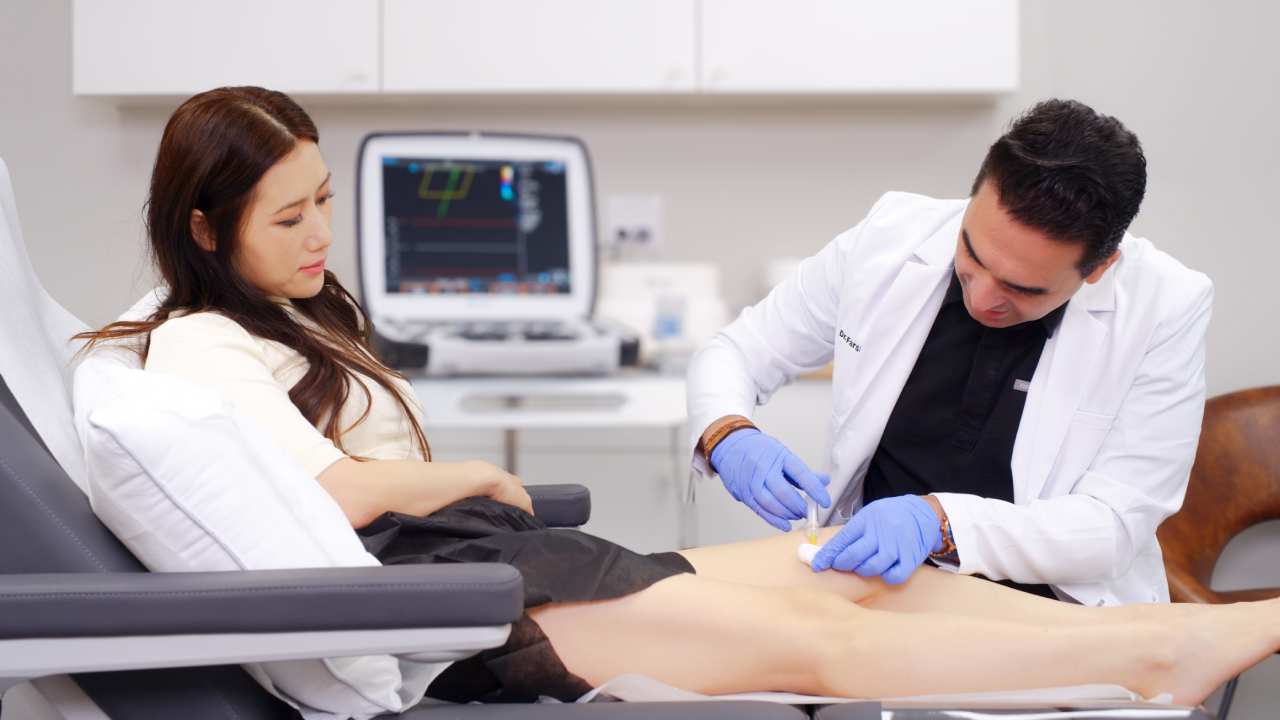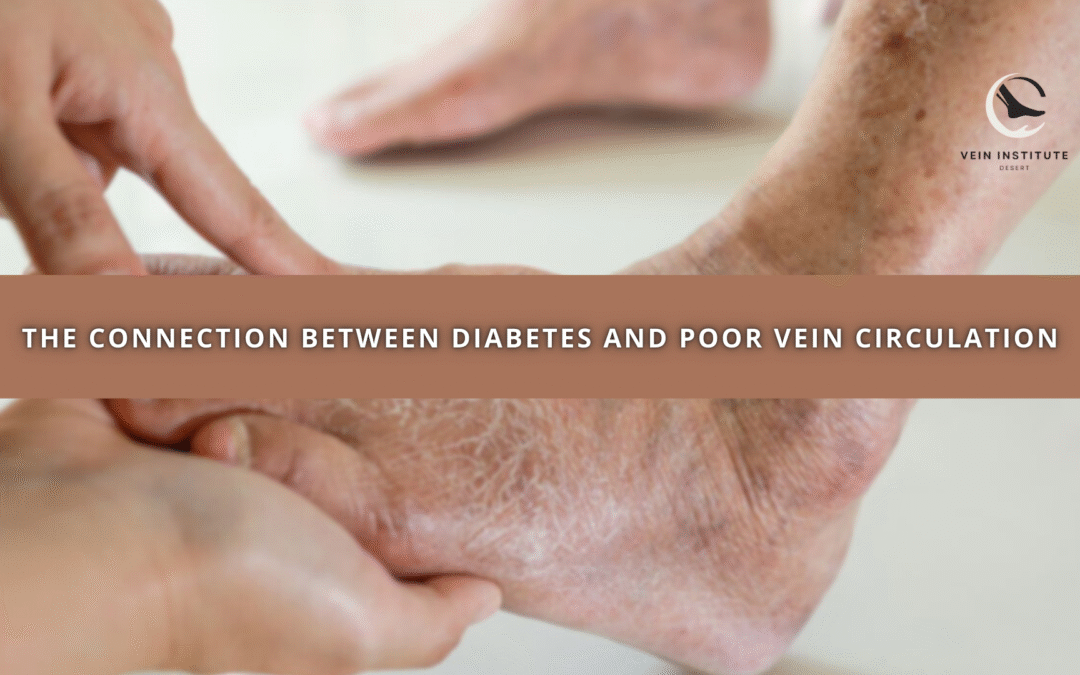Diabetes and Poor Vein Circulation 🩸

Alt Text: Exploring the link between diabetes and poor circulation in veins.
Diabetes is a condition that affects millions of people worldwide. Beyond blood sugar imbalances, it can have a significant impact on vein health. How diabetes impairs blood circulation is an often-overlooked consequence, but it’s one that can lead to severe complications if not addressed.
How Diabetes Impacts Circulation 🩺
Diabetes affects blood circulation in several ways. High blood sugar levels can damage the small blood vessels and nerves, impeding the flow of blood to various parts of the body, including the legs. This compromised circulation is especially harmful to veins, as it can lead to weakened veins, blood pooling, and ultimately conditions like varicose veins or chronic venous insufficiency.
When circulation is poor, it also slows down the body’s ability to heal itself, further increasing the risk of infection and other complications.
Increased Risk of Venous Disease in Diabetic Patients 🚨

Alt Text: How diabetes increases the risk of venous diseases in patients.
People with diabetes are at a much higher risk of developing venous diseases compared to those without the condition. Here’s why:
-
Nerve Damage (Neuropathy): Diabetes can lead to nerve damage in the legs, which can cause a loss of sensation. Without the ability to feel pain, individuals may not notice symptoms of vein issues, leading to delayed treatment.
-
Poor Blood Flow: As blood vessels are damaged, the flow of blood to the lower extremities slows down, making it harder for the body to fight infections and heal wounds.
-
Increased Pressure in the Veins: Poor circulation can cause blood to pool in the veins, which leads to swelling and increases the likelihood of developing varicose veins or even ulcers in the skin.
Treatment Options for Diabetic Patients 🏥
While diabetes presents challenges for vein health, there are treatments that can improve circulation and prevent complications. Here are some of the effective options available at the vein institute:
-
Compression Therapy: Special compression stockings can help reduce swelling, promote blood flow, and support weakened veins. This is particularly useful for diabetic patients who experience swelling in their legs.
-
Minimally Invasive Treatments: Procedures like sclerotherapy and laser therapy can close off problematic veins, redirecting blood flow through healthier vessels. These treatments are often effective for varicose veins and spider veins, common conditions in diabetics with poor circulation.
-
Lifestyle Changes: Maintaining a healthy weight, managing blood sugar levels, and exercising regularly can all improve circulation. Diabetic patients are often advised to engage in gentle, regular activities like walking, which can help stimulate blood flow without overstraining the body.
Preventing Further Complications with Vein Experts 💡

Alt Text: Working with vein experts to prevent complications in vein health.
Preventing further complications is crucial when dealing with both diabetes and vein health issues. Seeking care from a vein doctor can help detect problems early and manage them before they become more serious.
Regular check-ups and early interventions are vital for preventing the development of more severe vein diseases such as deep vein thrombosis (DVT) or venous ulcers.
If you have diabetes and are experiencing symptoms such as leg pain, swelling, or visible varicose veins, it’s important to consult with a vein specialist. These professionals can assess your circulation and recommend the most appropriate treatments to improve vein health and overall well-being.
Protecting Your Vein Health with Early Intervention ⚖️
The key to managing vein health with diabetes is early intervention. By addressing circulation issues early on, you can prevent complications that could lead to more severe vein diseases.
At the vein center, specialists understand the unique challenges diabetes poses and can tailor a treatment plan to your specific needs. Early treatment can help alleviate symptoms, reduce pain, and improve overall quality of life.
Andy Sharify
Position
